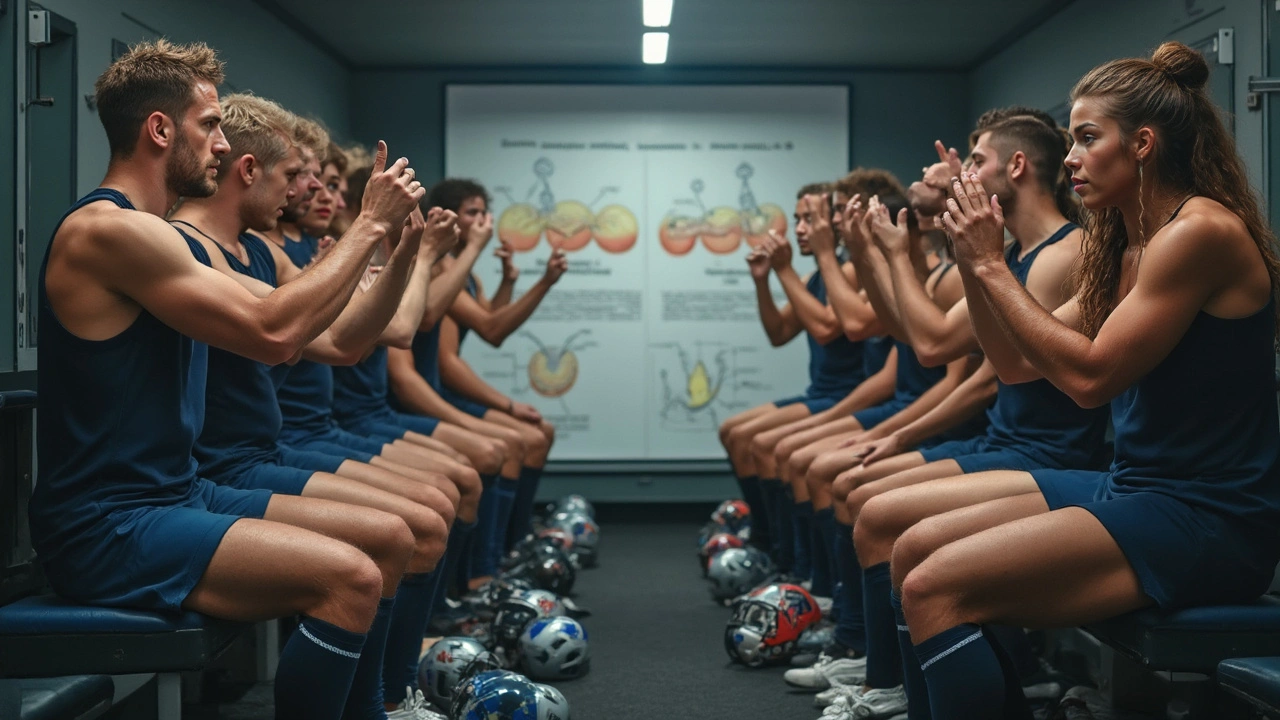Sports Hair Health: Smart, Simple Care for Athletes
If you train hard, your hair and scalp get a workout too. Sweat, friction from helmets, pool chlorine and daily washing can leave hair dry, tangled and fragile. These tips focus on easy routines you can keep between sessions so your hair stays strong and your scalp stays healthy.
Quick daily fixes that actually work
Rinse or wash after heavy sweat. Salt and sweat hold bacteria and oil near the roots, which can irritate the scalp and make hair brittle. Use a gentle clarifying shampoo once or twice a week to remove buildup, and a mild shampoo on other days. If you train twice a day, a quick water rinse and conditioner on the ends after the first session helps without stripping natural oils.
Dry carefully. Pat with a microfiber towel instead of rubbing. Rubbing roughs the cuticle and causes breakage. If you can, air-dry or use a cool blow-dry setting; high heat weakens hair over time.
Watch your styling. Tight buns, high ponytails and tight under-helmet braids can pull at follicles and cause traction damage. Opt for low, loose styles and use fabric-covered bands. If you wear headgear or helmets, add a thin moisture-wicking liner or a soft band to reduce friction and sweat sitting directly on the scalp.
Prep for swimming and recovery for dry hair
Before you jump in the pool, wet hair with fresh water and apply a basic conditioner—wet hair takes on less chlorinated water. Wear a swim cap and rinse immediately after swimming. Use a chelating shampoo once a week if you swim regularly to remove chlorine and mineral deposits that dull and weaken hair.
After any pool or beach session, use a leave-in conditioner or lightweight oil on the ends to lock in moisture. Focus on the tips—those are the oldest, most fragile parts of the strand.
Hydration and diet matter. Protein supports hair structure; aim for a steady intake of lean protein, eggs, beans or dairy. Iron and vitamin D help with healthy growth—if you train heavily or follow a restricted diet, get a simple blood test and talk to your clinician before taking supplements.
Supplement smart: omega-3s and a basic multivitamin can help if your diet misses key nutrients, but don’t expect overnight fixes. If you’re on prescription meds or performance enhancers, check with your doctor about hair-related side effects.
Keep equipment clean. Shared helmets, hats and headbands pick up sweat and skin oils. Wash liners and sweatbands regularly and rotate gear so items dry fully between sessions.
Small routine changes protect your hair with minimal effort: gentler washing, less heat, looser styles, swim prep and better hydration. Those add up fast and keep your hair working as hard as you do.
Why Athletes Face Early Androgenic Alopecia: Testosterone, Sweat & Helmet Friction Explained
Athletes are often seen as the healthiest people around, but they also experience androgenic alopecia earlier than average. This article digs into why sportspeople lose hair faster, connecting testosterone metabolism, sweaty scalps, and helmet friction. You'll learn about the science, see real-world examples, and pick up tips to help keep your hair. The article also includes helpful stats, facts, and practical advice for reducing risk.






